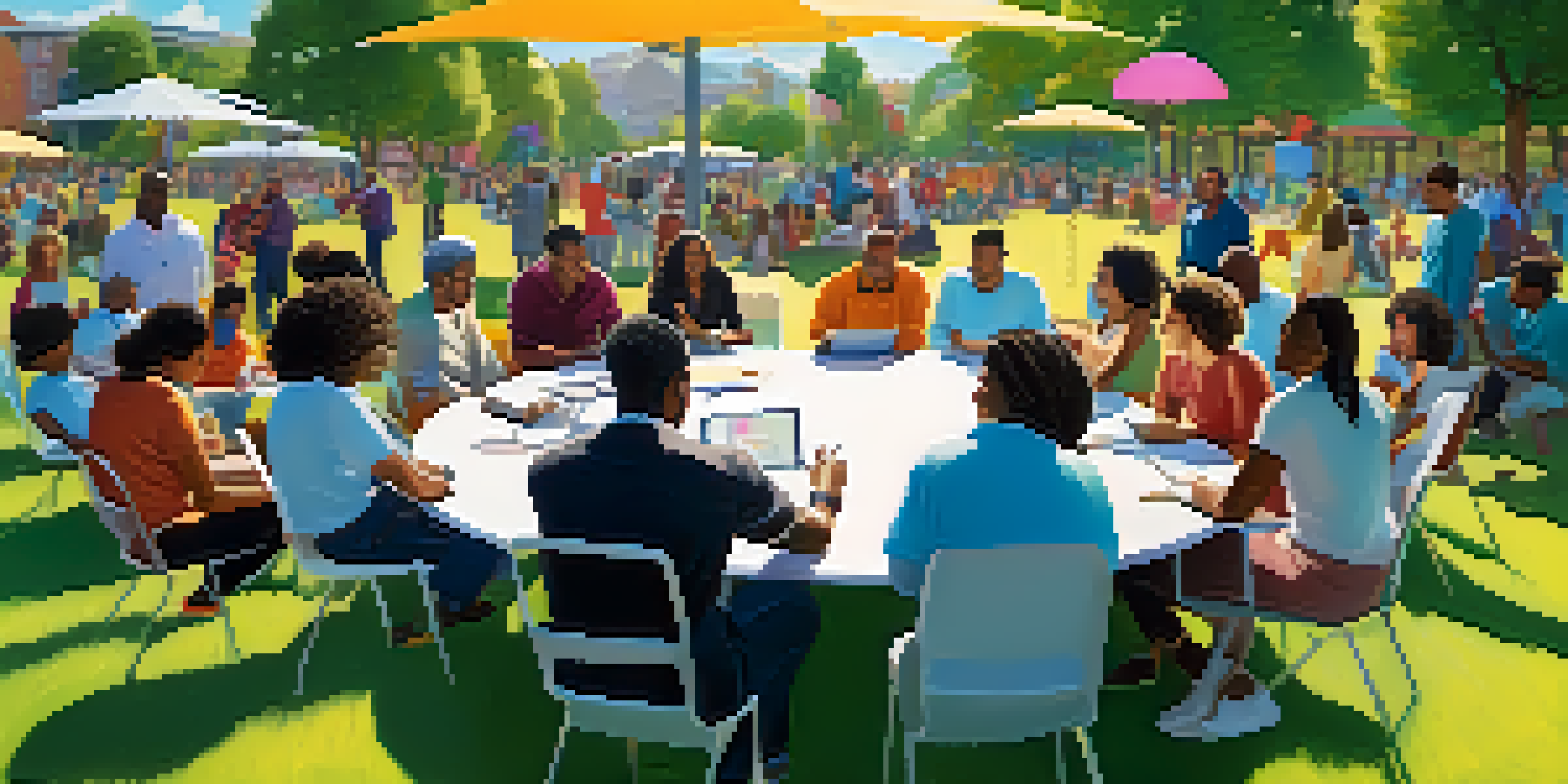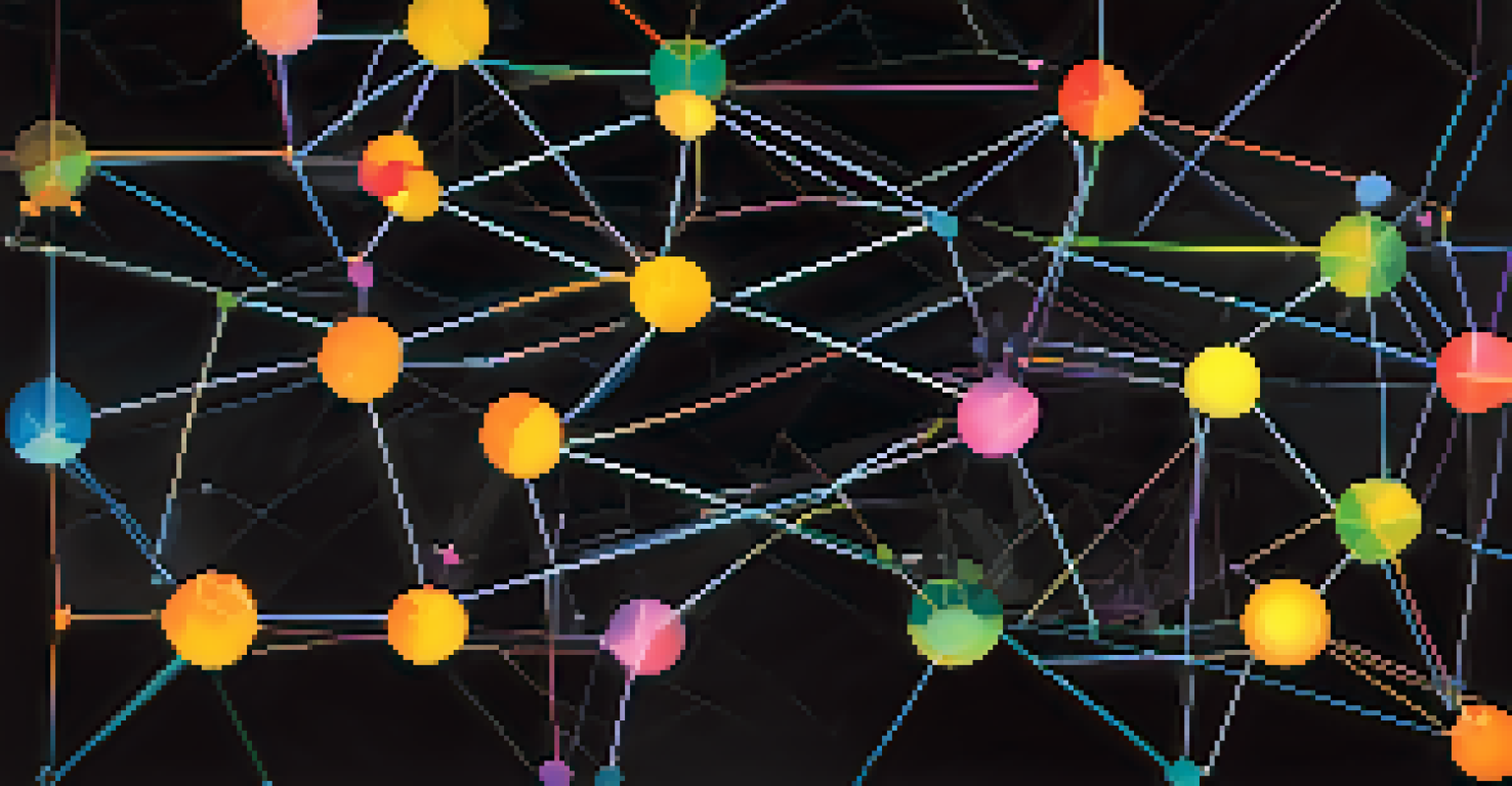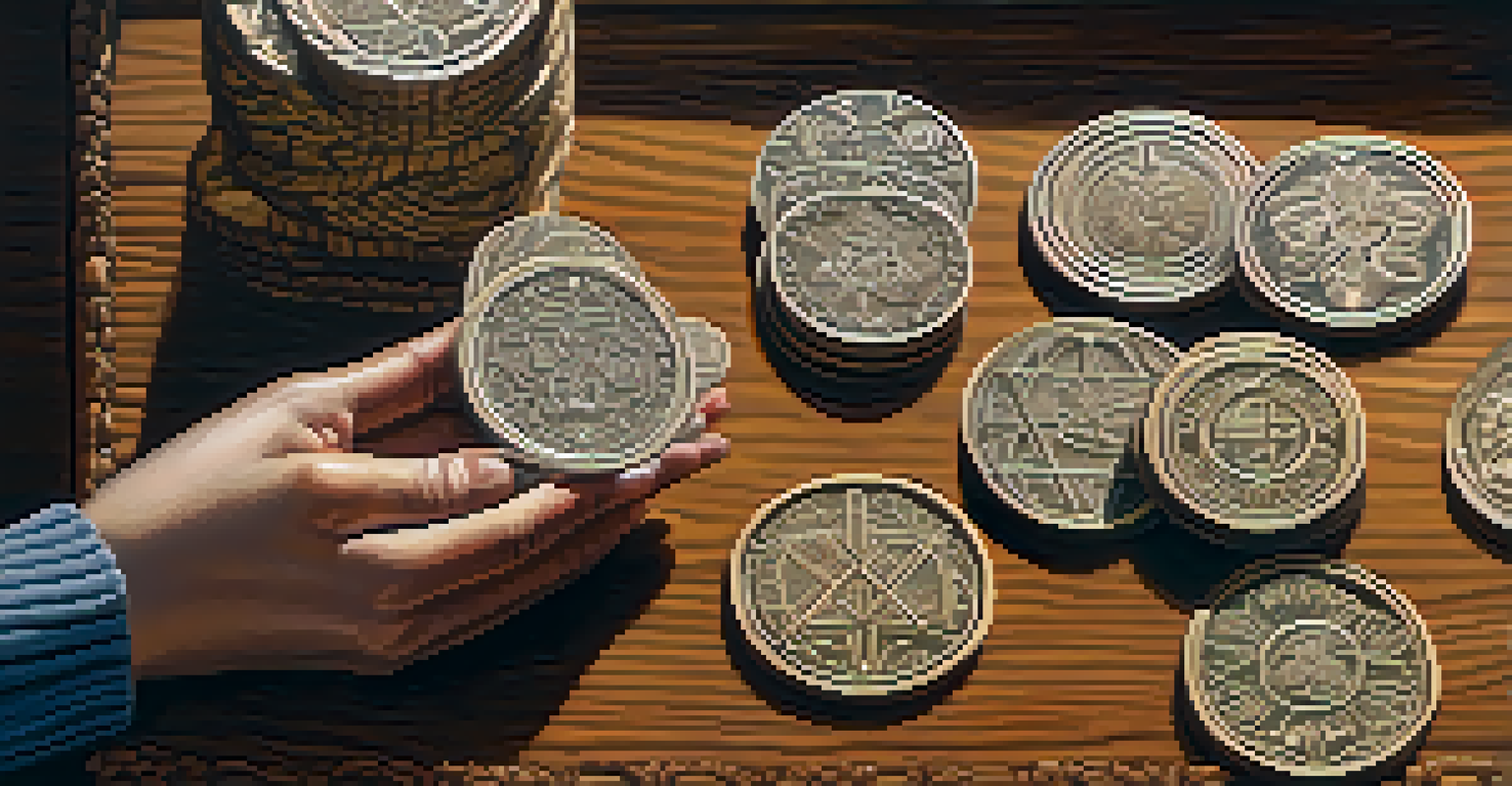Understanding DAOs: The Future of Governance in Crypto Ecosystems

What is a DAO? A Simple Introduction to Decentralized Governance
A Decentralized Autonomous Organization, or DAO, is a new way of structuring organizations that operates without a central authority. Imagine it like a community where everyone has a say, and decisions are made through consensus rather than top-down commands. This structure is particularly suited for the crypto world, where transparency and decentralization are crucial.
The power of a DAO lies in the collective wisdom of its members, where every voice can shape the future.
DAOs use smart contracts—self-executing contracts with the terms of the agreement directly written into code—to govern their operations. These contracts automate processes, ensuring that all members can participate in decision-making fairly and transparently. Instead of one person wielding power, the community collectively decides the direction of the organization.
As we delve deeper into the world of DAOs, it’s essential to understand their implications for governance. They represent a shift from traditional hierarchical models to more egalitarian structures, empowering individuals and fostering a sense of ownership among members.
The Key Features of DAOs That Set Them Apart
DAOs are characterized by their reliance on blockchain technology, which ensures transparency and security. Every decision, vote, and transaction is recorded on the blockchain, making it nearly impossible to manipulate or erase history. This level of transparency builds trust among members, who can see how their contributions are being used.

Another defining feature is the voting mechanism, which allows members to voice their opinions and vote on proposals. This participatory approach contrasts sharply with traditional organizations, where decisions are often made behind closed doors. In a DAO, every vote counts, and the majority typically prevails, creating a sense of collective agency.
DAOs Empower Collective Decision-Making
Decentralized Autonomous Organizations allow members to participate in governance through a consensus-driven approach, fostering a sense of ownership.
Additionally, DAOs often have token-based systems where members hold tokens that grant them voting rights. This means that those who contribute more to the community—be it through work, funds, or resources—can have a greater say in governance, aligning incentives and participation.
The Benefits of DAOs in Cryptocurrency Ecosystems
One of the most significant benefits of DAOs is their ability to foster community engagement. By allowing members to participate in decision-making, DAOs create a strong sense of belonging and shared purpose. Members are more likely to invest time and resources into the organization when they feel their voices matter.
In a world where trust is scarce, DAOs offer a novel way to build communities and make decisions without centralized control.
DAOs also streamline operations by reducing bureaucracy and enabling faster decision-making. Traditional organizations often face bottlenecks due to hierarchical structures, but DAOs can quickly adapt to changes and seize opportunities. This agility is critical in the fast-paced world of cryptocurrency, where trends and technologies evolve rapidly.
Moreover, DAOs can attract a diverse range of talents and perspectives. Without geographical constraints, anyone from anywhere can contribute to a DAO, bringing unique insights and skills. This diversity enhances creativity and innovation, driving the organization forward in new and exciting directions.
Challenges and Risks Associated with DAOs
Despite their many advantages, DAOs also face specific challenges and risks that need addressing. One major concern is the potential for governance attacks, where malicious actors exploit vulnerabilities in the voting system or smart contracts. Ensuring a robust security framework is crucial to prevent such incidents.
Another challenge is the difficulty in achieving consensus among diverse members. With various opinions and interests, decision-making can become protracted, leading to frustration and inaction. Finding effective ways to streamline discussions and decisions is essential for maintaining momentum within a DAO.
Transparency is Key in DAOs
Built on blockchain technology, DAOs ensure that all decisions and transactions are recorded transparently, building trust among members.
Additionally, regulatory uncertainty surrounding DAOs poses risks. As governments and institutions grapple with how to categorize and regulate these organizations, members may face legal ambiguities. Staying informed about regulatory changes and adapting accordingly will be vital for the longevity of DAOs.
Real-World Examples of Successful DAOs
Several successful DAOs have emerged, demonstrating the potential of this governance model. One notable example is MakerDAO, which governs the DAI stablecoin. Through a decentralized voting process, members can make crucial decisions about the stability and functionality of the DAI, showcasing the power of collective governance in action.
Another example is MolochDAO, which focuses on funding Ethereum development. Members contribute funds and vote on proposals to allocate resources effectively. This approach not only fosters community involvement but also ensures that the development of Ethereum aligns with the interests of its users.
These examples illustrate how DAOs can operate effectively in real-world scenarios, driving innovation and collaboration. As more organizations adopt this model, we can expect to see new ways of governance that prioritize transparency and community engagement.
The Future of DAOs and Their Impact on Governance
Looking ahead, the future of DAOs appears promising. As more people recognize the benefits of decentralized governance, we may witness an increase in the number of DAOs across various sectors. This shift could redefine how organizations operate, prioritizing inclusivity and community-driven decision-making.
The rise of DAOs may also inspire traditional organizations to adopt similar principles. By integrating aspects of decentralization and transparency, established entities can foster a more engaged workforce and a stronger sense of community. This blending of old and new could lead to innovative governance models that benefit everyone involved.
DAOs Face Governance Challenges
While DAOs offer innovative governance solutions, they also encounter risks like governance attacks and challenges in reaching consensus.
Ultimately, DAOs represent a significant evolution in governance structures. They challenge conventional norms and pave the way for a future where individuals have more control over their organizations, leading to more equitable and responsive systems.
How to Get Involved with DAOs Today
If you're interested in getting involved with a DAO, the first step is to research existing organizations that align with your interests and values. Many DAOs have websites and social media channels where they share updates and opportunities for participation. Engaging with these platforms can provide valuable insights into their missions and governance processes.
Once you find a DAO that resonates with you, consider contributing in ways that match your skills and resources. This could involve participating in discussions, voting on proposals, or even providing financial support. Remember, every contribution counts and helps strengthen the community.

Finally, stay informed about the evolving landscape of DAOs. Follow industry news, join relevant forums, and connect with other enthusiasts. The more you learn and engage, the more you'll be prepared to make meaningful contributions to the future of decentralized governance.